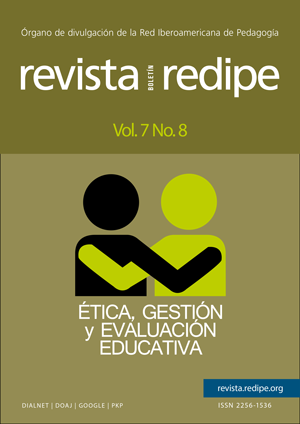Mediation of ICT in Representative Music Groups of the Lumen Gentium Catholic University Foundation - Unicatólica. A significant experience
Main Article Content
Keywords
ICT, education, significant experiences, systematization
Abstract
This article presents the work carried out in a process of characterization and systematization of a significant experience mediated by ICT in representative musical groups of the Lumen Gentium Catholic University Foundation - Unicatólica. It is developed in the context of university welfare and is led by the teacher director representative groups of music, who has achieved, through this experience, develop meaningful learning with their students, in addition to a very good practice, incorporating different strategies that They helped him achieve the objectives set.
The methodology of the research was descriptive, with an approach that included quantitative and qualitative aspects, and under the case study method. Three data collection instruments were designed: field diaries (observation), semi-structured interviews and Likert-type surveys. At the end, positive results were obtained regarding the use of ICT and how these are a fundamental factor in the success of the experience.
It is highlighted how the learning process in these groups, has not only technical and instrumental benefits, but also pedagogical, and that they are recognized by the participants themselves, which makes rewarding strategies and thus strengthening the same experience. All this taking into account that a significant experience, as MEN (2009) mentions, must contain characteristics such as being a concrete practice, systematic evidence, self-regulated and contextualized.
References
Coll, C., Majós M, T., & Onrubia Goñi, J. (2008). Analyzing Actual Uses of ICT in Formal Educational Contexts: A Socio-Cultural Approach. Revista electrónica de investigación educativa, 1-18. Recuperado de: http://www.scielo.org.mx/scielo.php?script=sci_arttext&pid=S1607-40412008000100001&lng=es&tlng=en
Coll, C. (2008). Aprender y enseñar con las TIC: expectativas, realidad y potencialidades. Boletín de la Institución Libre de Enseñanza, 72, 17-40.
Coll, C., Onrubia , J., & Mauri , T. (2007). Tecnología y prácticas pedagógicas: las TIC como instrumentos de mediación de la actividad conjunta de profesores y estudiantes. Anuario de Psicología, 377-400. Recuperado de: http://revistes.ub.edu/index.php/Anuario-psicologia/article/viewFile/8407/10382
López de la Madrid, M. C. (2007). Uso de las TIC en la educación superior de México. Un estudio de caso. Apertura,, 63-81.
Maslow, A. (1943). A Theory of Human Motivation. Recuperado de: http://psychclassics.yorku.ca/Maslow/motivation.htm
Ministerio de Educación Nacional. (2009). Cartilla "Las rutas del Saber Hacer - Experiencias Significativas que Transformar la vida Escolar. Bogotá, Colombia: Ministerio de Educación Nacional. Recuperado de: http://www.colombiaaprende.edu.co/html/docentes/1596/articles-197126_pdf.pdf
Ministerio de Educación Nacional. (2013). Competencias TIC para el desarrollo profesional docente. Bogotá: Imprenta Nacional. doi:978-958-750-762-1
Trías, F. (2004). Las tecnologías de la información y la comunicación en la formación docente. Montevideo: UNESCO. Recuperado de: http://unesdoc.unesco.org/images/0012/001295/129533s.pdf
Zubiría Samper, J. (2010). Los modelos pedagógicos. Bogotá: Magisterio Editorial.


